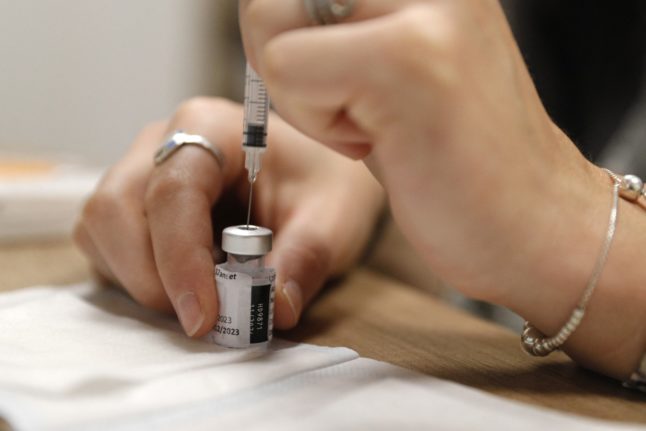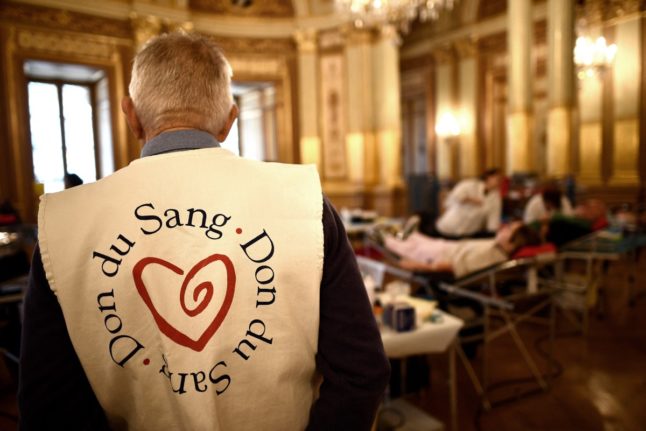On Monday, France rolled out another vaccination campaign meant to “protect those most at risk of developing a serious form of Covid-19” in the run-up to the 2024 Olympic Games, which France is hosting.
The country’s health authority, the Haute Autorité de Santé (HAS), announced the campaign, which will run from April 15th to June 16th, in a press release in February.
It is possible, depending on the ‘epidemiological situation’, that the campaign could be extended until July 15th.
Who is it targeting?
The extra dose is recommended for those over 80 years old, residents of care facilities and nursing homes, the immunocompromised and “anyone at very high risk”.
In addition to the targeted groups, anyone interested in getting an extra dose will be eligible, as long as their last jab or infection with Covid-19 was more than three months ago.
Why the extra campaign ahead of the Olympics?
Anne-Claude Crémieux, expert in infectious diseases and member of the HAS, told Franceinfo on Monday that “it is prudent to ensure vulnerable people have sufficient protection”, particularly with the large influx of people expected to be visiting France during the Olympics.
Crémieux explained that during the winter, there were 33,000 hospitalisations linked to Covid-29, with the majority (over two-thirds) being people over 75 years old.
“When you give a booster, you significantly increase protection against severe forms of Covid-19, by around 50 percent”.
How do I get a Covid booster dose?
Your GP (médecin traitant) should be able to give you a Covid booster on appointment.
Pharmacy staff, nurses, dentists and midwives are also able to administer booster doses. If you want to receive a vaccine at the pharmacy, you should be able to set an appointment in the pharmacy itself or over the phone.
The simplest way to book yourself for a booster dose (dose de rappel) is through the Doctolib website.
If you live in a care home or a special unit for people requiring long-term treatment, vaccination is organised on-site.
The vaccination itself is free for anyone residing in France, even if you don’t yet have a carte vitale. If you do have a carte vitale however, you should bring it to your appointment.



 Please whitelist us to continue reading.
Please whitelist us to continue reading.
Member comments